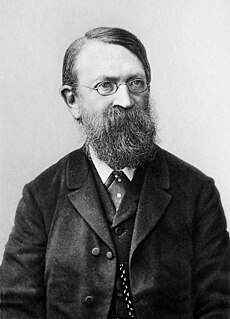Teori Auguste Comte Pdf


Auguste Comte Success comes in many different forms and from many different types of people. Still, it may surprise you to hear that one of the most influential people of the 19th century was a college dropout with a history of mental illness. How did that happen? Auguste Comte was a French philosopher born in Montpellier, France, in 1798, just after the French Revolution. Comte's parents had supported the royal family during the revolution, but as Comte came of age, he began to see the value of the revolution and the ideals that had led to it. Specifically, he became very interested in the way that society molded itself and the laws that it followed. Through his philosophical exploration of society, Comte would change the way the world viewed society, philosophy, and even science.
Penerapan teori-teori melalui metode saintifik yang ketat. Auguste Comte juga mencoba mengembangkan aliran filsafat positivism ini ke.
Let's look closer at two important contributions that Comte made to the world: sociology and positivism. Sociology In college at the University of Montpellier, Comte became infatuated with the ideals of the French Revolution. That is, he became really interested in the way that members of society rose up to rid themselves of the monarchy and to form a republic where everyone had the opportunity to become powerful.
Western Font Microsoft Word here. Comte dropped out of college and began studying on his own. He looked for patterns in the way that society behaved, including trying to figure out how society works. In 1826, when he was approaching the age of 30, Comte decided to present his social theory to the world in a series of lectures.
However, he only got to deliver about a third of the lectures before he was hospitalized with a mental illness. For the next 15 years, Comte was in and out of hospitals for psychiatric problems. But this didn't stop him from writing an influential series of books, collectively known as the Course in Positive Philosophy, where he said that society, like nature, operates under its own set of laws and should be studied the same way we study nature: with science.
Comte believed that the physical sciences, like physics and mathematics, should be complemented with a new type of science: the social sciences, which would study society using the same scientific principles. Putting his love of science together with his fascination with society, he coined the term sociology to describe the study of social behavior. Positivism Comte's ideas about society were closely related to what he called positivism, or the idea that the truth only comes from scientific knowledge.
In other words, if you can observe it and test it, then you can find the truth. Thus, Comte didn't consider things that cannot be scientifically validated, like religion and intuition, to be the 'real truth.' Through his study of sociology and positivism, Comte developed three stages of social evolution, which included the theological stage, the metaphysical stage, and the positive, or scientific, stage. According to Comte, societies start in the theological stage of development, where society is based on the laws of God, or theology. During this stage, the rules of society, and the way that people behave, are completely based on the ideals of the religion that is popular in that society. Since Comte was studying mostly French society, he was thinking of the Catholic Church here, and the fact that monarchies were closely linked to the Church, as well as the way that society's laws were based on church law and belief. After the theological stage, Comte said, societies move into the metaphysical stage of development, which involves finding universal rights for people.